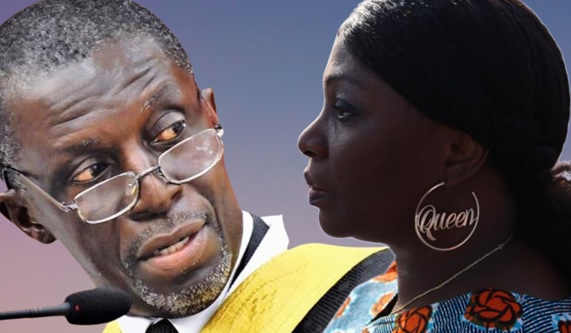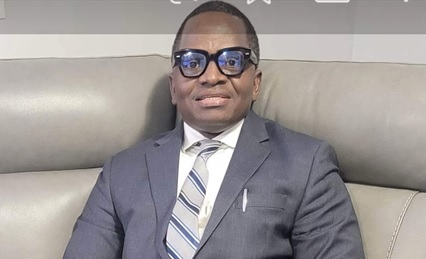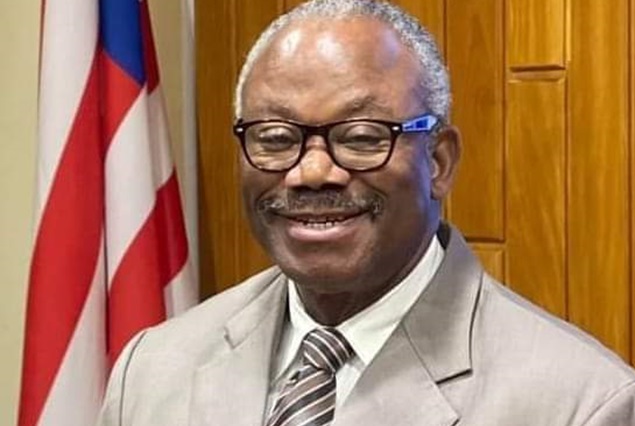MONROVIA – A recent speech by Cllr. Tiawan Saye Gongloe at the Center for Intellectual Exchange (CIEO) in Monrovia has sparked significant debate within Liberia’s civil society. Delivered on June 12, 2024, Gongloe’s address was a fervent critique of the persistent corruption afflicting African nations. He highlighted the disillusionment stemming from politicians’ unfulfilled anti-corruption promises and the subsequent inaction once they assume office.
Gongloe’s speech was part of the Joint Civil Society Anti-corruption Awareness Program, where he vehemently criticized the hypocrisy of political elites living opulent lifestyles while the majority of citizens endure poverty and deprivation of essential services. He illustrated how corruption hinders regional development, citing the collapse of West African airlines as a glaring example.
In his call to action, Gongloe advocated for a new liberation movement against corruption, urging civil society, the media, and the youth to unite in exposing and combating corrupt practices. He proposed legislative reforms to eliminate statutes of limitations on corruption offenses, promoting accountability at all governance levels. Gongloe also emphasized that corruption’s corrosive effects extend beyond economics, undermining social cohesion and political stability, and fostering inequality that threatens national unity and peace.
However, not everyone agrees with Gongloe’s approach. Madam Grace R.K. Guar, a Liberian writer, social justice advocate and President of the Liberian Women Advocacy Network International (LWANI), offered a rejoinder titled, “Right Message, Wrong Messenger?”, in which she questioned Gongloe’s suitability as the advocate for a new era of integrity. While acknowledging the alignment of Gongloe’s call with the “New Liberia” vision for progressive leadership, Guar pointed out his long-standing involvement in Liberia’s political sphere.
Guar suggested that Gongloe’s tenure as a senior advisor and as Solicitor General has placed him at the heart of the political establishment that he now critiques. According to her, his historical position within the existing political structure casts doubt on his ability to effectively lead the anti-corruption movement he advocates for. “He contested the 2023 presidential election on the ticket of the Liberian People’s Party (LPP). What were the results he got? His results in public service are not good. He made no impact. As Solicitor General of Liberia, how many cases did he prosecute? What happened at Firestone under his watch? We need to know his results,” she asserted.
She argued that for true progress, Liberia needs a comprehensive overhaul of its leadership. Guar expressed skepticism about the efficacy of Gongloe’s proposals given his deep ties with the current political elite. In her view, Liberia requires new leaders who can genuinely inspire and implement innovative anti-corruption measures, free from the entrenched interests that have long dominated the nation’s governance.
Guar’s critique extended to the nepotistic practices prevalent in Liberian politics, calling for an end to the hiring of relatives and the concentration of power within families. She emphasized that a new generation of leadership is essential to eradicate these practices and to move Liberia forward. This sentiment reflects a broader desire within Liberian society for transformative change, beyond mere rhetoric.
Furthermore, Guar underscored that Gongloe’s recognition of outdated anti-corruption measures from his previous tenure is insufficient. She argued that it is not enough to acknowledge past inadequacies without actively promoting and supporting new leadership that embodies the principles of transparency and accountability.
The debate sparked by Gongloe’s speech and Guar’s rejoinder underlines the complications and challenges in addressing corruption in Liberia. While there is a consensus on the need for robust anti-corruption measures, the path to achieving this goal remains a contentious issue. This debate reflects broader struggles within the nation’s quest for transparent and accountable governance.
Eventually, the contrasting perspectives of Gongloe and Guar highlight a critical juncture in Liberia’s fight against corruption. As civil society continues to push for reform, the dialogue between established figures and new voices will be crucial in shaping a future where political power serves the collective welfare rather than personal gain.







